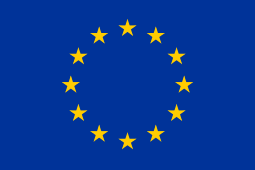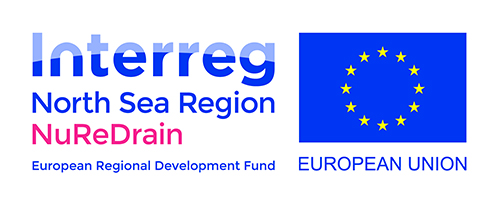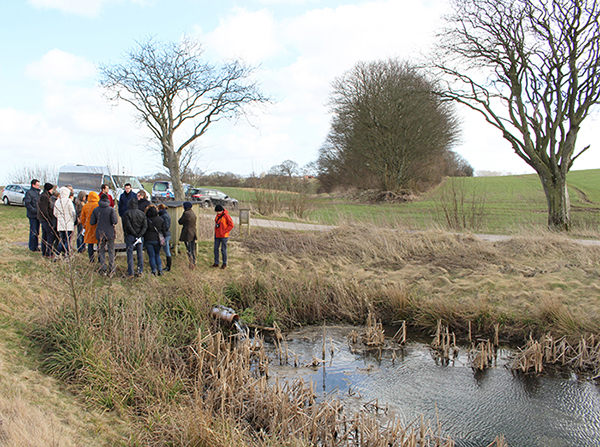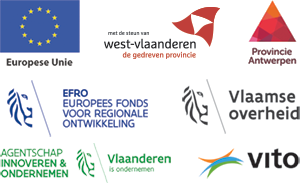NuReDrain
Researching filtration systems for nutrient recovery from agricultural water


The North Sea region is recognized as an intensive farming area. Nutrient inputs from land – nitrogen (N) and phosphorus (P) in particular – have resulted in eutrophication in rivers, lakes, estuaries and even coastal zones. Current regulatory practices, generally coupled to mitigation measures, are considered insufficient to reduce these nutrient losses down to the biological threshold values. Even the stricter legislation on fertilization in Flanders did not result in overall compliance to the European limits of 50 mg N/l and 0.1 mg P/l. Hence, there is the call for a more curative approach.
NuReDrain: Nutrient Recovery from Drainage water
NuReDrain proposes such a paradigm shift. The Interreg North Sea Region project aims at developing a technology for trapping both phosphorus (P) and nitrogen (N) in agricultural waste streams such as drainage discharges and greenhouse effluents. Its main objectives are:
- to stimulate knowledge exchange;
- to develop cost-effective filter technologies targeting nutrients removal for different situations and regions;
- to reuse the recovered P for agricultural purposes; and
- to work out implementation guidelines for the North Sea Region.
Testing filter materials
The project’s starting point is the construction of a database including all technological and economical data on a range of filter materials. The most promising of these materials are then validated in a series of field tests, after which further on-site tests will verify to what degree the trapped P can be reused as fertilizer. These field tests are conducted at six locations in Belgium, Denmark and Germany.
In addition, the project will examine how agricultural streams should be treated preferentially in order to improve the water quality in a certain area.

More information
NuReDrain has received funding from the Interreg North Sea Region programme. The project has also received support from the Belgian provinces Antwerpen, Oost-Vlaanderen and West-Vlaanderen.
A total of 11 organisations from Belgium, Germany and Denmark have partnered up for the project, including, for Flanders, Ghent University, KULeuven, VITO/Vlakwa, PCT, Inagro and De Watergroep.
Project website: www.northsearegion.eu/nuredrain
Vlakwa contact: Charlotte Boeckaert
